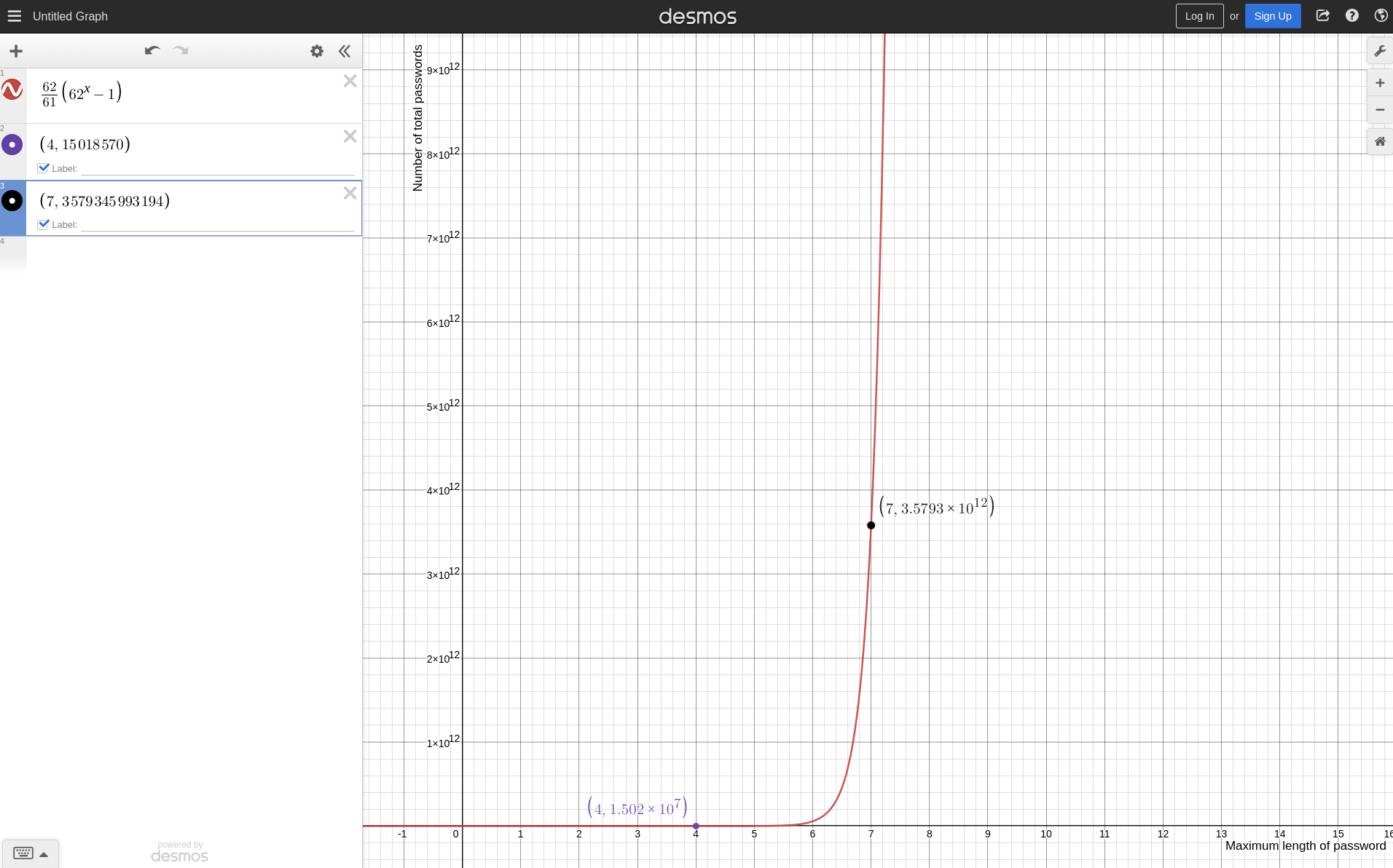2.7 PASSWORD LENGTH’S EFFECTS ON ATTACK TIME
EXERCISE 2.7 PASSWORD LENGTH’S EFFECTS ON ATTACK TIME
Repeat the previous exercise, but this time for two-symbol inputs. Then try it with three and four symbols at a time. How much longer does it take to invert the randomly chosen input?
Suppose the password is constructed from lowercase letters, uppercase letters, and numbers. Thus the python equivalent for this is string.ascii_letters + string.digits. This set contains \(62\) elements.
Thus,
| Maximum length of password | Number of total passwords |
|---|---|
| \(2\) | \(62 + 62^2 = 3,906\) |
| \(3\) | \(62 + 62^2 + 62^3 = 242,234\) |
| \(4\) | \(62 + 62^2 + 62^3 + 62^4 = 15,018,570\) |
| \(n\) | \(\frac{62}{61}(62^n-1)\) |

# ex2_7.py
import hashlib
import secrets
import timeit
from string import ascii_letters, digits
ALPHABET = ascii_letters + digits
def generate_random_password(max_length_of_password: int) -> str:
length_of_password = 1 + secrets.randbelow(max_length_of_password)
return ''.join(secrets.choice(ALPHABET) for _ in range(length_of_password))
def h(x: str) -> str:
'''returns the md5 digest of the string x.'''
return hashlib.md5(x.encode('utf-8')).hexdigest()
def single_run(digest_of_password: str, max_length_of_password: int):
def generate(alphabet, max_len):
if max_len <= 0: return
for c in alphabet:
yield c
for c in alphabet:
for next in generate(alphabet, max_len-1):
yield c + next
for possible_password in generate(alphabet=ALPHABET, max_len=max_length_of_password):
if h(possible_password) == digest_of_password:
# found a match
break
return
if __name__ == '__main__':
COUNTER = 1
for length_of_password in range(2,5):
rand_pass = generate_random_password(max_length_of_password=length_of_password)
h_rand_pass = h(rand_pass)
total_execution_time = timeit.timeit(
stmt=f"single_run('{h_rand_pass}', {length_of_password})",
setup="from __main__ import single_run",
number=COUNTER,
)
print(f"Called single_run('{h_rand_pass}', {length_of_password}) {COUNTER} time(s). Total execution time (in seconds): {total_execution_time} sec")
print(f"Average execution time: {total_execution_time/COUNTER} sec")
print(f"password was: {rand_pass}")
print("\n--------------------------------\n")
How about the worst case scenario??
Note that
>>> import ex2_7
>>> ex2_7.ALPHABET
'abcdefghijklmnopqrstuvwxyzABCDEFGHIJKLMNOPQRSTUVWXYZ0123456789'
>>> Thus:
